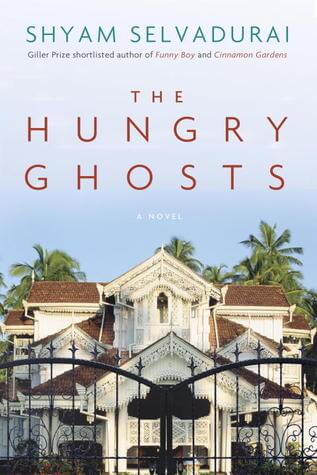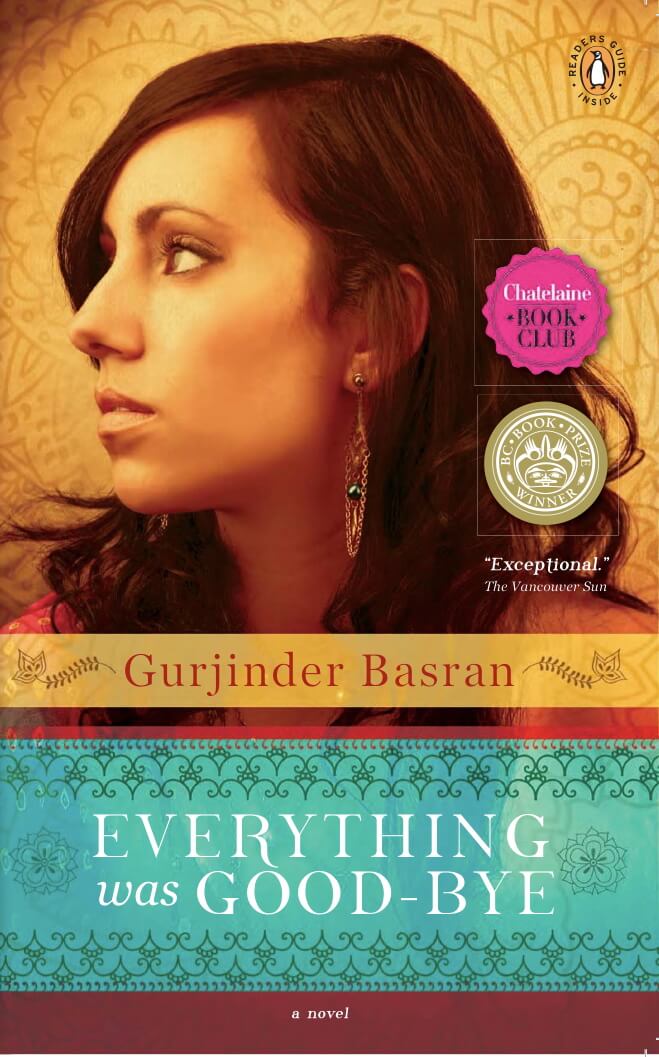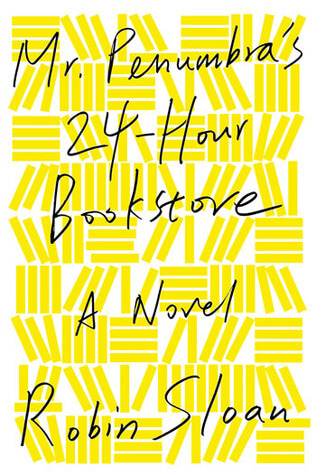In The Hungry Ghosts, author Shyam Selvadurai follows the journey of Shivan, a half-Tamil half-Sinhalese Sri Lankan boy who escapes the violence of the Tamil uprisings—and the controlling influence of his formidable grandmother—by migrating with his mother and sister to Canada. But, as Shyam revealed when he sat down to chat with me, a life can’t just be restarted from scratch. The past always follows us. . .
I absolutely loved The Hungry Ghosts. It’s a book I just sank into, and felt so sad throughout so much of it. It’s beautifully written. I’m wondering about the six-year gap in writing between this book and your last, Swimming in the Monsoon Sea. Have you been working on this for six years, were you taking a break or waiting for inspiration to strike?
It took me forever to get it down. It took a long time to describe the Toronto that I wanted to write about, which is kind of the amorphous, inner rings of Scarborough, and to find the language to do that. My language isn’t really suited to doing that for some reason, so it took a long time to stretch it to encompass that milieu and that terrain. It’s hard. That area doesn’t have a central street. The point of it is that it’s amorphous, the point of it is that there’s no central orientation except, of course, the Bridlewood Mall [a central hub in the novel for Shivan’s mother and the displaced Sir Lankan community]. And that somehow, the details. . . I wanted to be able to capture it in the same sensual details I capture Sri Lanka.
And of course, all the Buddhist stuff took forever to work because I wanted to find a way to incorporate it in a more literary way, rather than just an add-on, a little exotic add-on. It’s of course based on the story of the naked Peréthi [hungry ghost], and I wanted to be able to incorporate that in a literary way.
May I ask, is your own background Buddhist, or did you have to do much research to include the Buddhist stories in your narrative?
I’m actually born and raised a Catholic, and I don’t consider myself a Buddhist as such, because Buddhism is a religion, but I think what interests me is the philosophy of it. I try to live my life as much as I can by those principles. I think it’s actually a very commonsensical way to check in with yourself every day, checking constantly with yourself as you go about your day. I find it useful.
I really enjoyed the way you used the stories of the naked peréthi, as you say, not as an add-on but to give structure and metaphor to the story of Shivan and his family. Was that your original aim? Did you start with the theme of hungry ghosts, or were you writing the book first and found that it had resonance with these Buddhist stories?
What happened was I started the book and then got interested in the [Buddhist] philosophy, and then there was that gap where I was trying to figure out how to bring it into the book, you see? And then the research involved, the reading.
You speak of Toronto and Scarborough as “amorphous.” Are these places you are writing about in the 1980s fundamentally different from where you live now?
Yes. I live downtown now! It’s very different compared to what it was. I think also that Scarborough has changed, has become much more multicultural. It still is what it is. It’s still architecturally an amorphous inner-ring suburb, the majority of people are from middle to lower-middle classes, who travel very far to make a living, to make a go of it. And it’s also a highly immigrant area.
This book, far more than your previous work, deals with “the immigrant experience,” but it feels different to me from what is considered “literature about The Immigrant Experience,” which abounds in Canada. You do a beautiful job of telling one family’s story, but not necessarily subscribing to certain cliches or following a certain path about what diaspora fiction “is.” I find it interesting that there’s a pushing-away from finding the community within Canada for your characters. There’s a real struggle with integration of any sort here.
I thought that on some level that. . . I think that part of being an immigrant in the 21st century is being able to go back a lot. The fact that you don’t leave your home life in the way those people who are buried in the cemetery in Bridlewood Mall are. When you came at that point, even up until recently, you basically left home behind. But now “home” is ever present for you, and I wanted to capture that experience.
I also wanted to challenge the notion, the sense that you arrive and it’s hard for a while, but then everything is fine, that everything’s great. I wanted to challenge that a bit. Without giving away the end of the book, the return at the end is only possible in the 21st century and perhaps the late 20th century. Also the fact that they are such flawed people. Shivan and the other characters are so flawed that you can’t actually say that, oh well, it happens to them because they are immigrants, because of the racism. That’s a facet of it. But they are also acting players in that. And that was important for me. The experience is also somewhat different than, say. . . Brick Lane, for example, right? In the sense that these people who are coming out of the affluent classes in their own country and have an analysis of power and class and such that others don’t seem to have.
And then, you know, my mother, she’s a working woman, she’s educated, she can go into the workplace, she wasn’t trying to stay at home. So her analysis was very different. And there are hundreds of thousands of women like her who are educated and who are in many ways more liberated than women are in the “traditional” immigrant novel. Even in Jumpa Lahiri’s novel, in The Namesake, you see the mother and father, and she is somebody who has a very limited perspective on the world because she is a cloistered wife.
And speaking of strong female characters, I love Aacho, Shivan’s grandmother. She’s such a complex, difficult character. You hate her and you love her, and you see how much love she has for Shivan. In some ways, she’s a feminist. She runs this business, she takes no nonsense, but of course she also subscribes to some very traditional views on men and women. What was it like writing her? What are your influences? Did you like her? Did you struggle with her?
No, I really liked her. You can tell the writer’s having a good time with her. She was a composite. She wasn’t my grandmother, but she was like a lot of women of that generation, those grandmothers we all have who are so strong, who just saw no clash between running business and estates, the extension of the concept of the household beyond the house. they were often rural women who came from rural gentry who brought a different, more robust idea of womanhood to the city, you know. So even though she was an easy character to create, the hard thing was keeping her from taking over the entire book. To me, this is first Shivan’s story, and I was keen that it stay in Shivan’s point of view.
We meet her on Shivan’s thirteenth birthday in an encounter that makes us as readers know right off the bat what kind of woman she can be. That colours the way we see her throughout the novel. She is the villain of the piece in many ways, but is becoming weakened by having to come to Canada in the end. Do you see this as much her story as Shivan’s?
It is Shivan’s story, very much, but it’s also about their relationship. But it is his story, his novel. That sort of growth that occurs in the book is his. But she does go through a transition. Right in the beginning of the novel, I think the reader is aware that this person has come to this place in her life, so you’re always looking at her from a slight distance. You’re seeing the person you’re reading about has already become something else. I think that evokes, in a sense, a kind of ongoing sympathy for her, because you see where she’s ended up.
She says it often, right? “Well, that’s your karma, it’s your fault, you’re living it out now.” As you’re watching, you even see her lamenting about herself “What have I done in a past life that this is my karma now?”
To me, that was very much part of the Buddhist stories. They have great irony to them, you know. You both empathize, but you also want to watch from a distance. It’s a combination, you’re doing both at the same time. I think it’s a nice part of those stories and something I wanted to integrate into the novel.
There’s also this idea of starting over. Can you truly start over? Hema is starting over in Canada, trying make a life that Shivan sees as phony. Shivan is doing similar things, telling his Aacho that he works in a lawyer’s office though that’s not true. But the past always catches up, which feeds into the theme of karma quite beautifully. Can you talk a bit about the idea of constructing a life or the idea of a life, and how your characters want to be seen by others?
I don’t think it’s feasible, or as the Buddhists would say, skillful, to try to pretend that you can start from scratch. We all carry our history with us, we all carry our karma with us into the next life. The question of the novel is that is destiny fixed or are doors open to the future? It’s that combination that you find in these religions that subscribe to karma that yes, your karma is something that is fixed but within that framework you have free will to choose how you will deal with it and you have free will to create good karma for your next existence.
There’s also that idea in Buddhism itself that once your bad karma is now ripening, it’s like a debt. Now you’ve paid it off. and that allows people on some level some way to cope and manage with difficult things that happen. but that sort of purity version of karma that the grandmother holds is that something bad is happening to you and that’s because of your bad karma in the path, and hence you don’t really deserve any sympathy.
Because you deserve what you got.
Because you deserve what you got, exactly.
This plays into the idea of duty, which I think is quite strong throughout the book as well, and rebelling against duty. You see Hema doing very well in school until her mother expects her to do well, and so she stops excelling. Or the path that Aacho has set out for Shivan that causes Shivan to rebel against her and move to Canada. Were you thinking actively about the role of duty within this particular family and in Sri Lankan cuture as you wrote?
Yes and no. It’s an interesting question. Nobody’s asked me that before, you caught me off guard! I think for me, it’s something that’s so organic to the culture that I didn’t think to highlight if you know what I mean. It’s very interesting to hear a question like that because I’m now reading a book called The Life of the Buddha by Aśvaghoṣa. The introduction is very interesting. The guy who is the translator talks about dharma [which, among other things, refers to ethical rules of conduct] and the different concept of what dharma means, and it got me very interested in thinking about possibly. . . I don’t know what I’m going to work on next, but I was thinking, I’ve done karma, can I do dharma? But all of this is to say I hadn’t actively and intellectually thought of duty as a concept I would work through in The Hungry Ghosts. I think it’s just organically there.
I’m curious about something you said earlier, that you find your voice suits writing about Sri Lanka more than writing about Toronto. Were you writing about each place while you were there yourself? I know you divide your time between the two places.
I just went back and forth between the two places. Wherever I was and whatever part needed to be written, I just wrote it there. So I think a fair amount of that last section, the Vancouver section, was written in Toronto. But I think the most evocative writing experience I had was writing that last chapter because I knew I had to get it done and I was under a deadline. I basically seemed to write it in real time. I was seated in my apartment in Colombo, and you know how Shivan imagines what’s going on in Colombo when he goes around Toronto cleaning the house? I was in my apartment in Colombo and literally the exact same time frame was passing in front of me, in mid to late afternoon. So what I would do is go and stand at the balcony and literally watch, smell, and go in and write it down. And the tree that kind of shakes itself loose is outside my window. So that was very evocative writing. It was really interesting—I’ve never had a writing experience like that before. There was something kind of magical about it that I was right there in the middle of it.
And there’s certainly an immediacy that’s conveyed in that scene. That’s really interesting, a behind-the-scenes glimpse of how it came about.
[laughs] Thank you.
Did you find that capturing each place was important to you in telling this story?
Yes, it’s very important to me and I’m very bad at it!
I would disagree with that!
People seem surprised when I say that but I’m a person who’s very unobservant. So because I’m aware of this, I really work hard to compensate for that. People are always surprised when I say that, just like people who read Proust are surprised that he had a very bad memory. But I think because he had a bad memory, he had to work hard at remembering, and that memory, when it arrived, was such a fresh thing for him, because he had a bad memory. And I have a bad memory, so when I finally get the detail and that, it sometimes, most often, requires me asking somebody, “Do you remember? Do you remember?” Or it really is just squeezing my eyebrows, squeezing my forehead as it comes to me. So yes, it is like that.
You’re right, because the Sir Lankan Civil War is of course a major backdrop of this novel, but you’re never doing infodumps, you’re never saying “And this is what happened on this date, and therefore. . .”. It’s a cause and it’s a setting, but you’re never preaching or lecturing.
I know what you mean and I think that’s a terrible thing to do in a novel! But I do think that place is very important in the novel in terms of evoking mood and atmosphere and tempo and theme and everything, and getting the right detail down. Getting to that right, emotionally evocative detail. I think in the end your duty as a novelist is to take your reader on an emotional journey. I think if people want to read a more distant thing, they’re read essays or something like that. Your job is to lead people through an emotional journey in which they learn the lessons of the novel in an emotional way, which I think is a deeper way of learning something than just in an intellectual way.
I think you’ve articulated the importance of reading fiction just beautifully, right there.
Thank you!
In contrasting the two places, Renu, for example, when she’s having trouble fitting in describes Canada as “the shits” but when Shivan is getting ready to go back to Sri Lanka, she asks him to make sure he talks to her former professors because she thinks he’ll have a hard time there. She plays the two places off each other in negative ways.
I think the thing that happens the moment you migrate to another country is you become doubly alienated, it’s like. . . so a) you’re alienated in the place you’ve arrived in, but b) precisely because you made this trip of migration—and I mean migration, I don’t mean coming for two years as embassy staff or coming for two years as a job. Migration has a kind of commitment to it, you see? So when you undertake that, you come to this place and you have this disconnection from it and you’re alienated from it, but you are also alienated from your home because now you are no longer like everybody else who stayed. You’ve had different experiences, and that makes you doubly alienated. There’s this constant—what you want to do is you want to return to this past Eden that you were in, but you can’t. So even when you return, on returning what you have to do is embrace the notion that you don’t really belong anywhere and then find your community among those who don’t belong and can’t find a sense of belonging. There’s a sense of belonging in not belonging. That’s not a bad thing, you know.
There are layers of that kind of alienation versus belonging, I think. When Shivan’s family first comes to Canada and are put up by Shereen and Bhavan, it’s clear that the people who immigrated in the 60s or 70s are trying so hard to fit in with Canadian white culture.
So poor Shereen and Bhavan, I just wanted to make sure that they were also rounded characters, not just stereotypically evil people here. When you came here in the 80s, those people who had come in the 60s had been around longer. The only way for them to survive and do well economically was to integrate and to try to push their own culture away. But we were coming into a different Canada, a multicultural Canada in which that multicultural image passed from theory to practice. We were just coming in and we had no intention of giving up our food or that we were going to conform to “Canadian ways.” So these people unfortunately had made this sacrifice and then it was a sacrifice that was useless, that nobody wanted them to do it anymore. But they had already done it, you see. That was sort of the tragedy.
But you couldn’t reach that point of being able to keep your culture without them having made that sacrifice, that each successive generation is building on what the last one has done. Renu has trouble when her new feminist friends want to try her mother’s cooking but turn away from her when they realize how different her culture and home life is from them. I don’t think you’d see that happening now, or not nearly as much.
Identity politics really gives people a way to talk to each other, I feel, across boundaries of colour. It’s a means we can use to talk to each other whereas before this language couldn’t exist. So I think Renu’s experiences were pre-identity politics, I don’t think anybody would even think like that now. It’s just not that big an issue. When I first came here, there were all sorts of non-white gay groups and non-white arts groups that had suddenly sprung up. You no longer needed to feel that you had no choice but to be on the fringe of the white gay world.
What was it like being shortlisted for a Giller for your debut novel?
That was the first year the Giller ever existed! So when I was shortlisted, I thought “what on earth is that?” I had no idea what it even was.
You’re one of the many excellent authors who is redefining what “Canlit” is. It’s not just frontiers and prairie life anymore. Do you think of yourself as a Canlit writer? Does it colour the way you write?
I do think of myself a s a Canlit writer in the sense that. . . I don’t advertise these things within the novel itself because I think it’s bad manners to kind of show to your reader what you’re trying to do in a literary way. But the whole idea of going to Vancouver, right, it’s a very common trope in Canlit, so like, A Jest of God [by Margaret Laurence] and Cat’s Eye [by Margaret Atwood], in both cases the protagonist goes to Vancouver, you see, Vancouver is a sort of Mecca. In A Jest of God she would go to Vancouver and she would be free, right? And in Cat’s Eye, she goes to Vancouver and she does have a much better life than she does in Toronto, right? But she does carry the damage with her. So I wanted a tipping of the hat to Atwood and Laurence, in the gesture of sending Shivan to Vancouver. Now you can’t tell that, I’m not signalling that in the book in any way, but for me at some level, that’s a sort of participation in Canlit, if you know what I mean. It’s taking the course and running the little extra bit with it.
And Susanna Moodie’s Roughing it in the Bush played a huge influence on the Canadian part, and I really wanted to get to the emotional sense of migration. The terrain, the weather, the largeness of the landscape. I really identified with in that book. A hundred and fifty years separate me from Moodie, but I really wanted to. . . If you asked me what the chief influence was on that section of the book, it would be Moodie’s Roughing it in the Bush. But again I can’t signal that too much to the reader in the book, so there’s a street that’s named after Susanna Moodie’s homestead, you see? It’s a little thing, nobody will get it, but to me it’s planting my stake in Canlit.
Are you familiar with Project Bookmark? Would you like a place Bookmarked for your works?
Oh, yes! I hope to have one of those for myself at Bridlewood Mall! I think Bridlewood Mall is up for memorializing!
You might also like:




